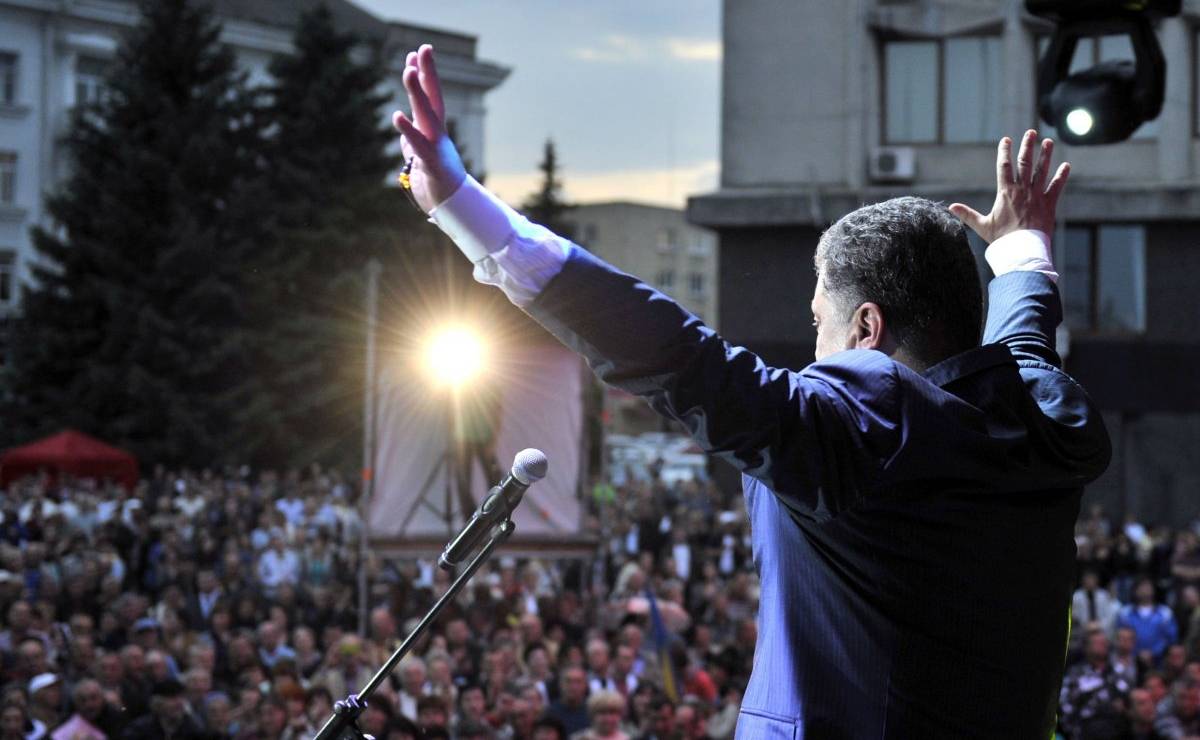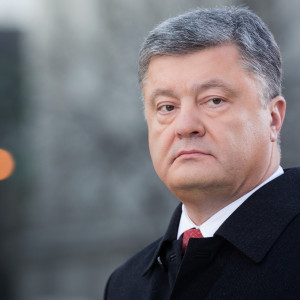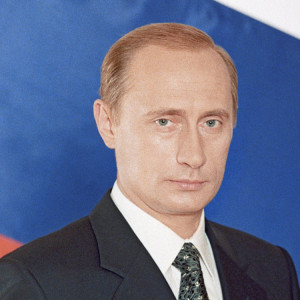На фото: Петр Порошенко во время встречи с избирателями в г. Сумы, 15 мая 2014 г. Фото Николая Лазаренко / POOL / УНИАН
Вашингтон - Киев
Избранный президент Петр Порошенко дал интервью The Washington Post.
В нём, в частности, он рассказал, что его первая задача будет состоять в том, чтобы быстро восстановить деморализованную и дряхлую украинскую армию, одновременно пытаясь устранить угрозу, исходящую от сильно вооруженного объединения боевиков и российских агентов, контролирующих ключевую инфраструктуру в Донецкой и Луганской областях.
Для этого новый президент считает, что ему потребуется больше помощи, чем он получает от Соединенных Штатов. «У меня нет впечатления, что [санкции] достаточно сильны - я думаю, что возможна дальнейшая агрессия», - сказал он мне. «А когда начинается агрессия, никакие санкции не помогают».
Порошенко считает, что США могли бы оказать прямую военную помощь. Он вспомнил программу Франклина Д. Рузвельта по ленд-лизу во время Второй мировой войны, перефразируя аргумент Рузвельта, что «когда дом вашего соседа горит, вы должны одолжить ему свой шланг».
«Теперь мы должны создать новый договор о безопасности, такой же, как ленд-лиз», - сказал он. «Мы должны сотрудничать в военно-технической помощи и консультировании. Мы готовы бороться за независимость, и мы должны наращивать вооруженные силы Украины ».
Порошенко дал понять, что готов вести переговоры с Россией. «Я достаточно хорошо знаю Путина», - сказал он, добавив, что готов пойти на компромисс во всем, кроме претензий Украины на Крым и ее решения об экономическом сотрудничестве с Европейским союзом. Но намерения Путина неясны.
Интервью Порошенко The Washington Post
By Jackson Diehl
Petro Poroshenko, the newly elected president of Ukraine, inherits a low-grade civil war against separatists backed by Russia, an economy rapidly descending into recession and a fragmented political system in which most power lies with a lame-duck, unrepresentative parliament. But as he sees it, he does have one thing going for him: For the moment, at least, a decisive majority of Ukrainians are behind him.
“This is the first presidential election when all the regions of Ukraine had the same winner,” he told me Monday night, in his first interview since winning a clear majority in a crowded first-round ballot. “You can consider it a referendum. Ninety-six percent of Ukrainians voted for the unity of the country. Eighty-five percent supported a candidate for European integration. So the president has a unique chance to unite the country and has a level of support which he never had before.”
Poroshenko may be overstating his case. In two eastern Ukrainian provinces that lean toward Russia, most people were unable to vote because of disruption by the separatist militias that Moscow backs. But he did defeat candidates representing pro-Russian parties across the Russian-speaking regions — he even won a majority among the 6,000 people from occupied Crimea who managed to vote. The aggression of Russian President Vladimir Putin may have tipped a decisive majority of Ukrainians toward support for a unified country that seeks economic integration with the West.
If so, it will be a political tailwind that Poroshenko badly needs. As president, the 48-year-old billionaire businessman, who made his fortune manufacturing chocolate, will have direct authority only over defense and foreign affairs. His first challenge will be to rebuild a demoralized and decrepit Ukrainian army on the fly while trying to eliminate the threat posed by the heavily armed mix of militants and Russian agents holding key infrastructure in the provinces of Donetsk and Luhansk.
For that, the new president thinks he will need more help than he has been getting from the United States. “I don’t have the impression that [sanctions] are strong enough — I think more aggression is possible,” he told me. “And when aggression starts, no sanctions help.”
What would help, Poroshenko says, is direct U.S. military aid. He brought up Franklin D. Roosevelt’s Lend-Lease program during World War II, paraphrasing Roosevelt’s argument as “when your neighbor’s house is burning, you should lend him your hose.”
“Now we should create a new security treaty exactly like Lend-Lease,” he said. “We should cooperate in military technical assistance and in advising assistance. We are ready to fight for independence, and we should build up the armed forces of Ukraine.”
Poroshenko has made it clear he is ready to negotiate with Russia. “I know Putin quite well,” he said, adding that he is ready to compromise over everything but Ukraine’s claim to Crimea and its decision to pursue economic association with the European Union. But Putin’s bottom line is unclear. Even Stalin had a politburo, the president-elect privately complained to one adviser. Poroshenko sees Putin as opaque, improvisational and unpredictable.
Tricky negotiations also loom at home. Poroshenko must figure out how to manage Ukraine’s infamous oligarchs — the billionaires who feed off state contracts and subsidies and who were a prime target of the mass demonstrations that brought down the previous, hugely corrupt government. Poroshenko is himself one of those oligarchs, though he has pledged to sell all but one of his businesses, a television network.
“What is the problem with the oligarchs?” he said, noting that he knew most of them well. “The real problem is corruption and the monopolization of the Ukrainian economy. If you were to end the monopolies and have zero tolerance for corruption, they will just be big businessmen. Some of them can survive; I’m happy with that. Under those conditions, I don’t see any problem cooperating with them. If they want to be mayor of a province, no problem at all.”
Poroshenko’s last big challenge will be to work with the shaky governing coalition in parliament, persuading it to pass painful austerity measures and a reform of the constitution — and to dissolve itself for new elections. On this last point he sounded strident: “This parliament is not representing anybody. If members of parliament appeared in their constituencies, 100 percent would be beaten. It’s a big part of our problem in the east. These are the most hated people.”
The new president can afford such talk for now because he is the only Ukrainian leader with a post-revolution popular mandate. If the country is to survive Russian aggression and economic restructuring, he will need to widen that circle soon.



